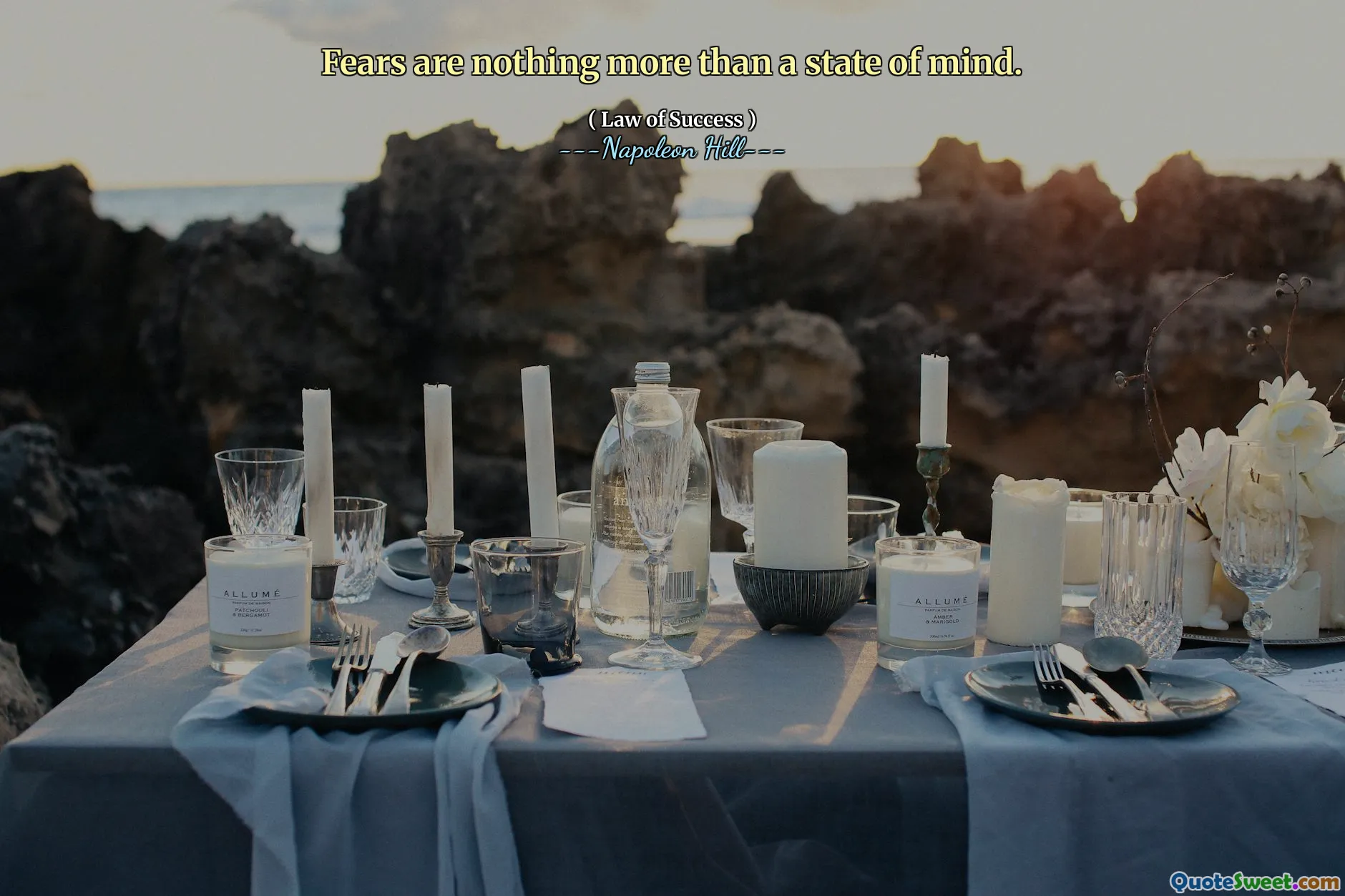
Fears are nothing more than a state of mind.
The statement 'Fears are nothing more than a state of mind' highlights the powerful influence of perception on our emotional experiences. Often, fear is a product of our own thoughts, imaginings, and beliefs about potential threats or shortcomings. It suggests that many fears we experience are not rooted in actual danger but are constructs of our subconscious, shaped by past experiences, societal conditioning, and personal insecurities. Recognizing this can be liberating because it implies that fears are within our control to some extent. If fears stem from our mental state, then shifting our mindset, challenging our beliefs, or practicing mental discipline can diminish or even eliminate these fears entirely.
From a psychological standpoint, understanding that fears are mental constructs allows individuals to confront and reframe their fears. Practicing mindfulness, affirming one's strength, and gradually facing fears through exposure are common techniques to dissolve the power that fear holds over us. The key lies in cultivating awareness that fear is not an objective reality but a subjective experience—and, importantly, one that we can influence. This perspective fosters confidence and resilience, encouraging us not to be bound by our fears but to see them as temporary, manageable, and ultimately, conquerable. It underscores a profound truth about personal growth: mastery over our mind can lead to freedom from our greatest limitations.
In essence, accepting that fears are just mental states paves the way for inner peace and empowerment. It reminds us that our greatest obstacle often isn't external adversity but our internal narratives. Changing these narratives can open doors to greater courage, clarity, and success in life's pursuits.






